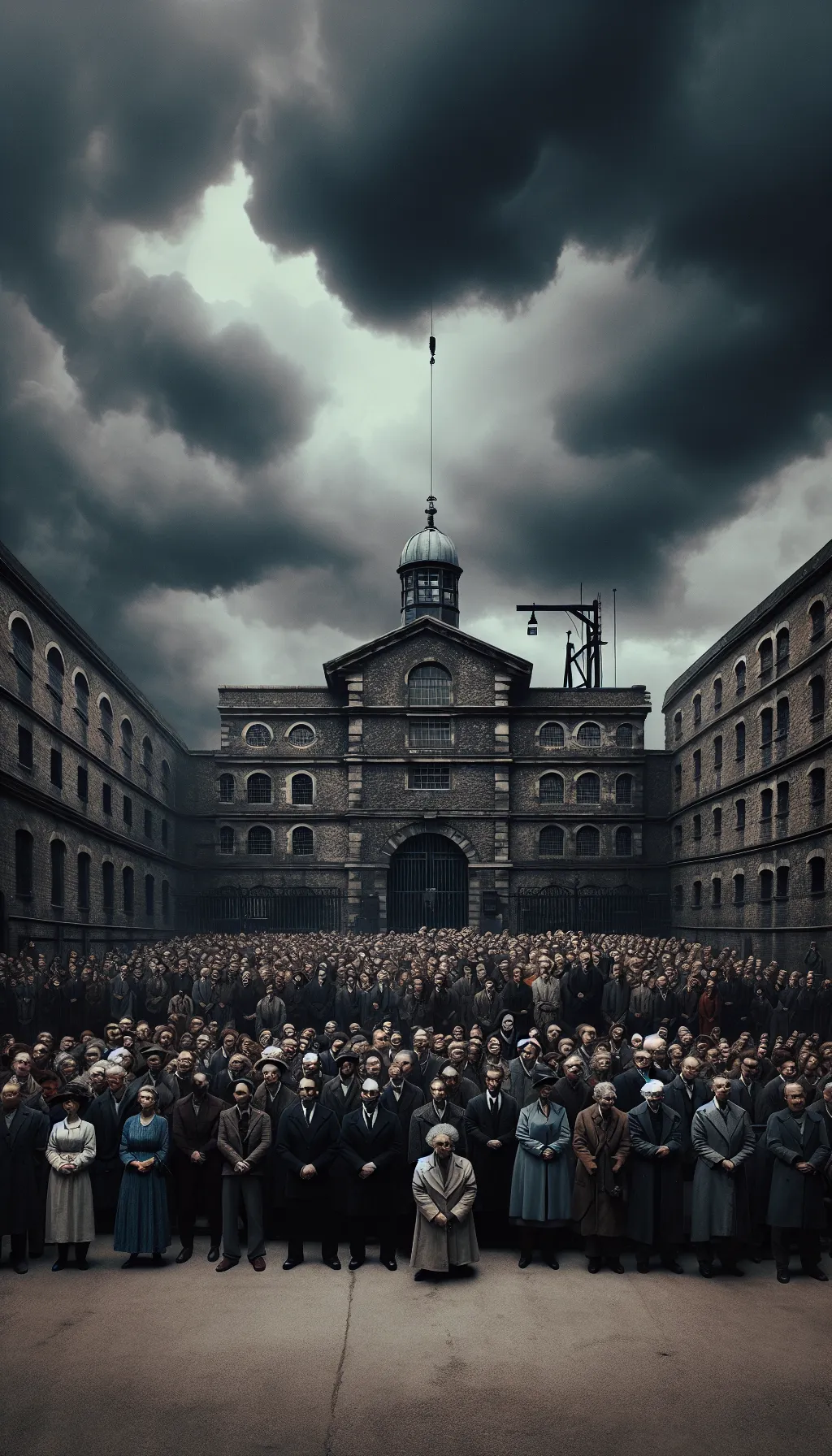England – The Final Curtain: England's Last Public Execution - May 26, 1868
TLDR;
- Event: Michael Barrett was publicly executed on May 26, 1868, outside Newgate Prison, marking England’s last public hanging.
- Background: Barrett, an Irish nationalist, was convicted for the Clerkenwell explosion, which killed 12 and injured around 120, during a failed attempt to free Fenian prisoners.
- Legislation Impact: His execution led to the end of public hangings in England, following a new law that moved executions behind prison walls.
- Historical Significance: This event symbolized a shift towards more private forms of justice, with private executions continuing in England until 1964 and in the UK until 1998.
–
–
Story
The air was thick with anticipation and the murmur of the crowd as thousands gathered outside Newgate Prison on May 26, 1868. They were there to witness a grim spectacle that had drawn public fascination for centuries—the execution of a man condemned to die. This day, however, would mark the end of an era.

Michael Barrett, an Irish nationalist, stood at the center of this historic moment. Convicted for his alleged role in the Clerkenwell explosion, a botched attempt to free fellow Fenians from prison that resulted in the deaths of 12 people and injured around 120 others, Barrett was to be the last person publicly executed in England. The explosion had sent shockwaves through London, and Barrett’s trial was a sensational affair, capturing the attention of the nation.
As the clock struck the appointed hour, Barrett was led to the gallows. The crowd, a mix of onlookers and rowdy spectators, watched as the noose was placed around his neck. The trapdoor opened, and with it, the curtain fell on public executions in England. The government, influenced by reformers and the chaotic spectacle of public hangings, had passed a law months earlier to move executions behind prison walls.
Barrett’s execution was not just the end of a life but the end of a public spectacle that had, for better or worse, been a part of English society for centuries. It was a turning point, reflecting a shift in societal values and the beginning of a more private, somber approach to justice. While Barrett’s was the last public hanging, executions continued privately in England until 1964 (and in the UK overall until 1998).
The legacy of that day lingers, a reminder of a time when justice was a public affair, and the streets of London bore witness to the final acts of the condemned.
–
| Would a different approach to justice have changed the course of history? |